We surveyed hundreds of Americans about their online shopping habits. Here is what they said.

A few months ago, we started asking Americans some questions about what they did online, and why. We asked hundreds of people about their behavior online, specifically tied to security and shopping.
As we processed the results, we saw some clear patterns emerge. Here are the main takeaways:
Most people are uneasy about their security online.
According to our results, 88% of people say they have concerns about the security of their personal information online. And it’s no wonder: with a seemingly endless list of breaches in just 2018 alone, customers are rightly concerned about the companies handling their data, and the bad guys trying to steal it.
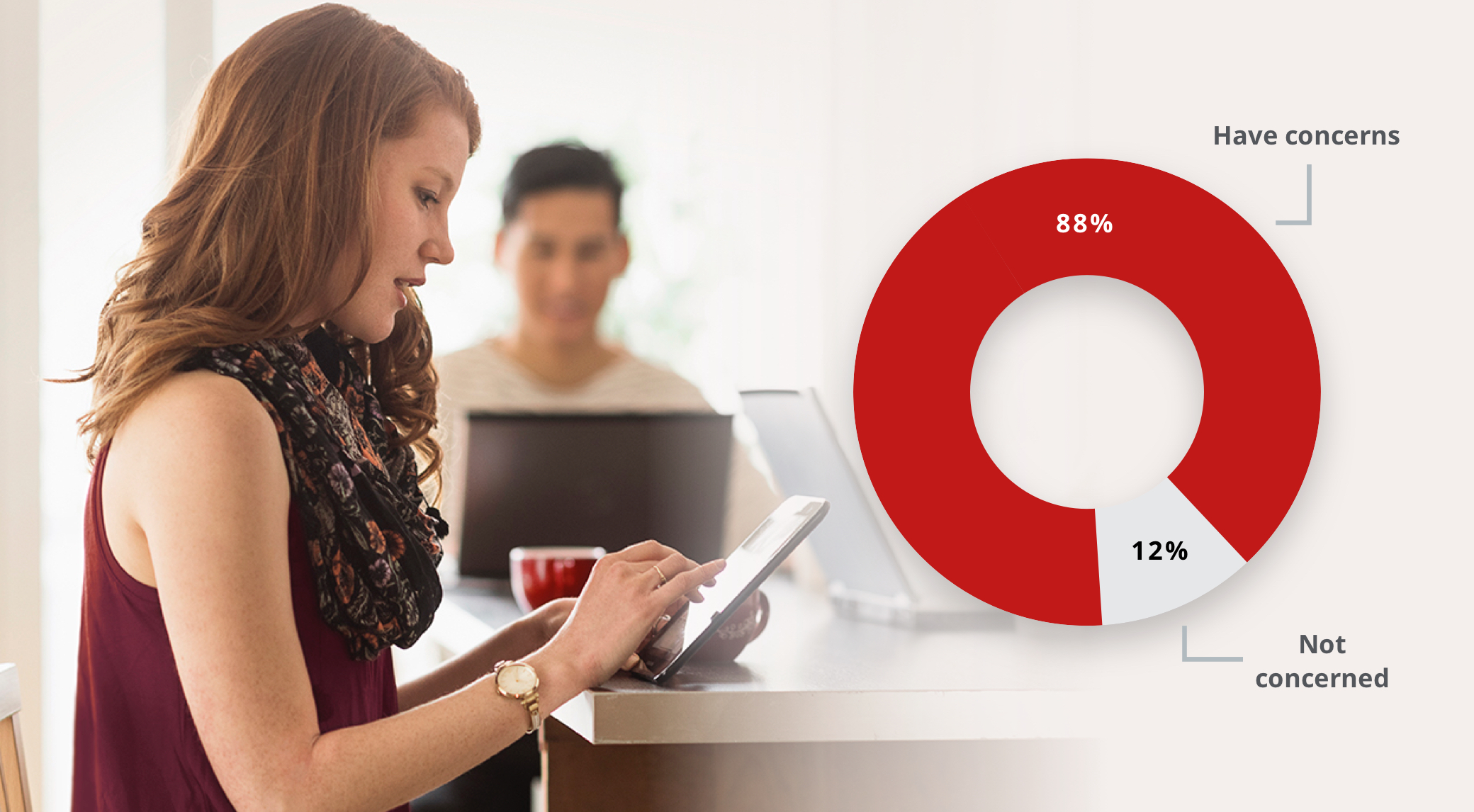
How concerned are you about providing personal information (e.g., credit card, address, phone number) when shopping online in general?
When shopping, people are particularly concerned about identity theft.
74% of consumers say they have concerns about getting their identity stolen when shopping. Even in the age of Amazon, which has done more to mainstream online shopping than anything else, people have these concerns.
The widespread use of mobile devices doesn’t seem to be helping, either.
In about a decade since the iPhone’s release, mobile devices have gone from novelty to everyday (or, more like hour) use. Even though 43% of people feel as comfortable making purchases on their smartphones as they do on their personal computers (up from 22% in 2013!), security concerns aren’t going away.
In fact, 67% of smartphone owners are concerned about providing personal information on their smartphone.
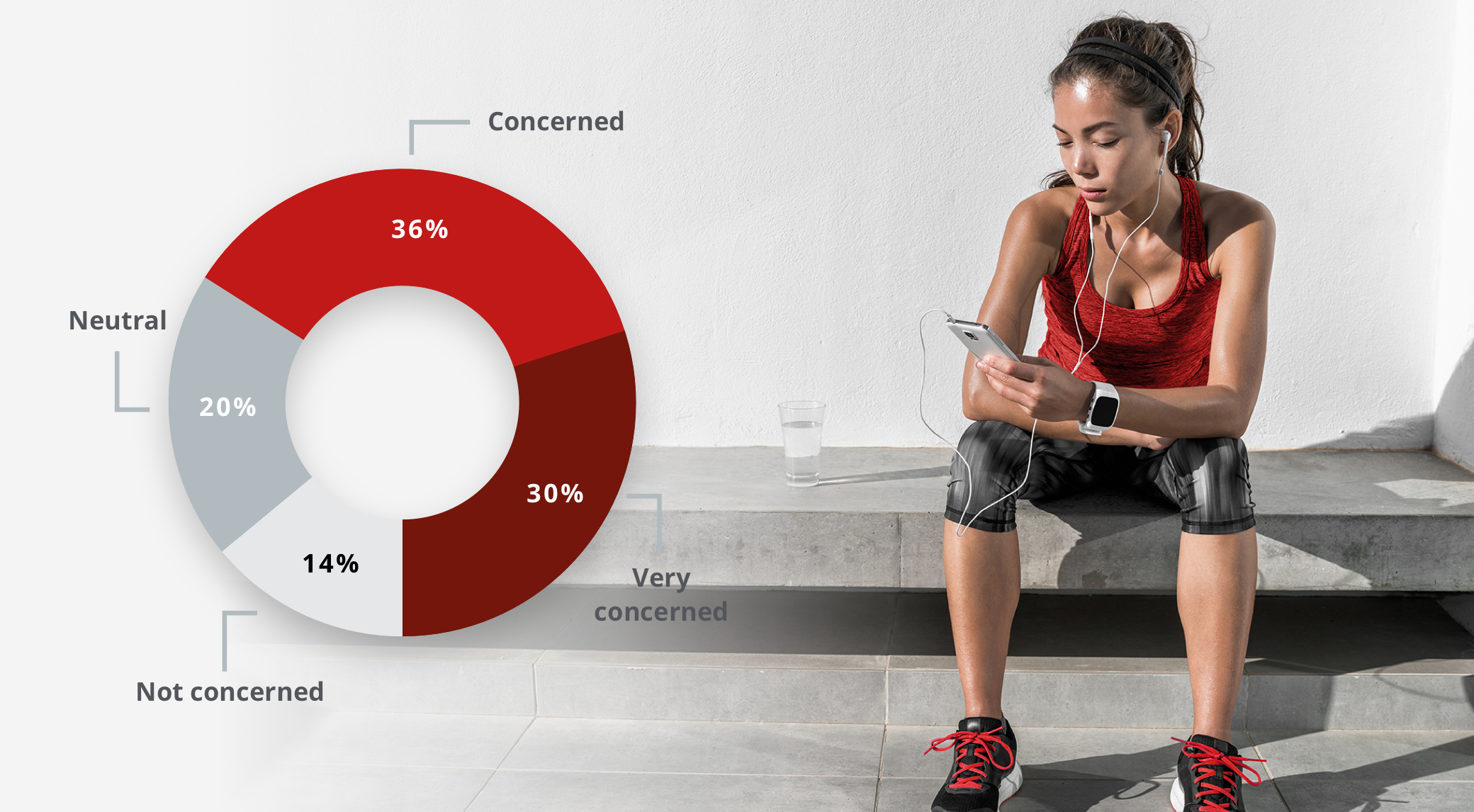
How concerned are you about providing personal information (e.g., credit card, address, phone number) when shopping on your smartphone?
So why do these fears persist, even as online shopping becomes more common?
Online shoppers are mostly worried about the unknown.
There’s some good news — if you’re Amazon, Walmart, or another business with fantastic brand recognition.
95% of consumers have security concerns about providing personal information like their credit card when shopping at websites they have not heard of before, and 92% of consumers have concerns about providing personal information like their credit card when shopping at websites they have not shopped at in the past.
And so if you’re really well known, or you have enough repeat customers to keep your business going strong, you’re all set. (Lucky you!)
For the rest of us, these security concerns are a worry.
Why?
Security concerns can cost you sales.
With people saying they’re hesitant to provide credit card information to unfamiliar sites, it’s no surprise that 62% of consumers have started to purchase an item online only to abandon the purchase because of security concerns.
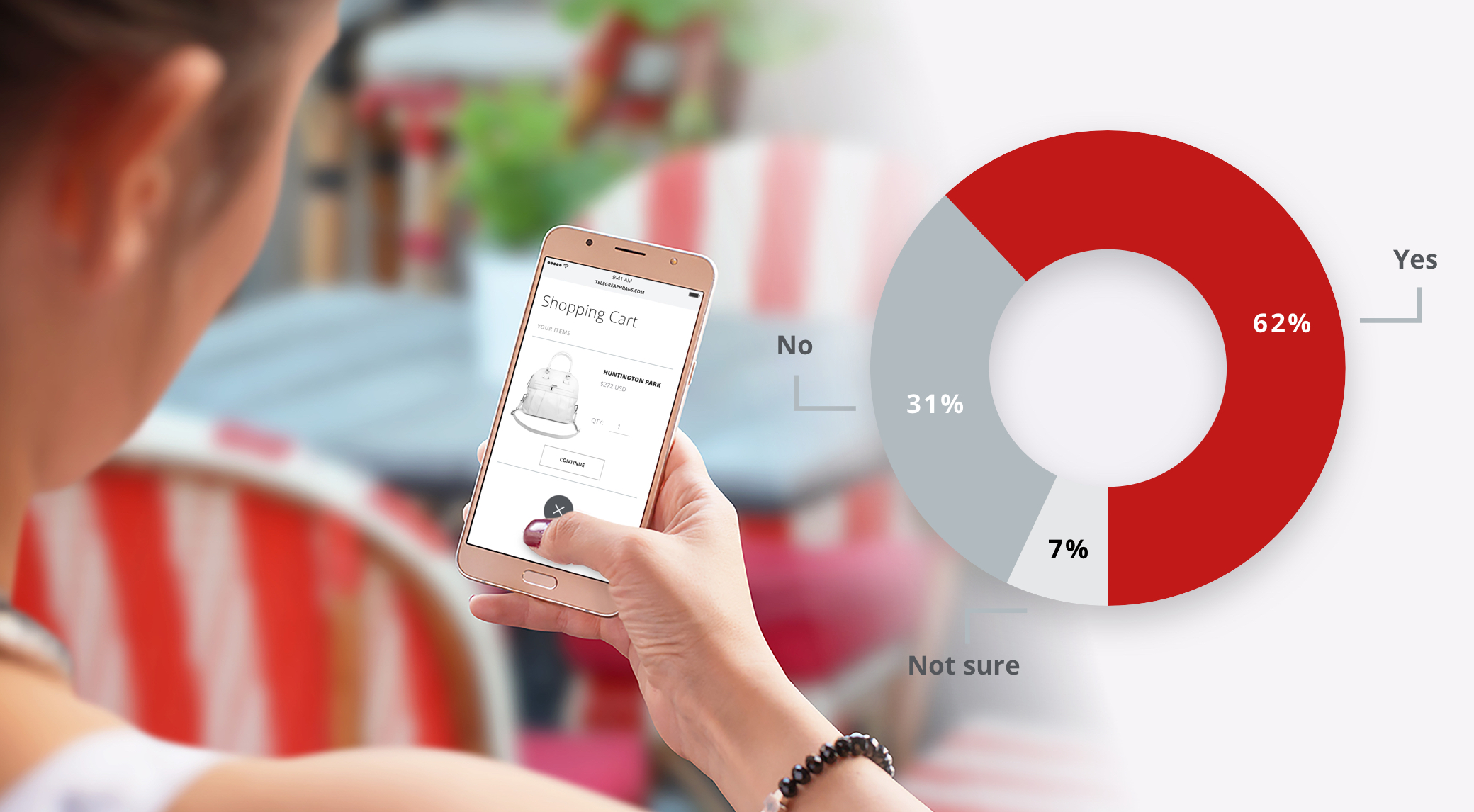
Have you ever started to purchase an item online only to abandon the purchase because of security concerns?
So what can you do about it if you’re NOT one of the big boys?
The best thing to do is earn your shoppers’ trust. Trust is, implicitly, what those big brands have. Customers trust that Amazon’s security is top-notch. They trust their return policy, their shipping times, and their customer service.
Trust is at the core of brand strength, which is why it’s so important to build.
That’s why trustmarks, sometimes known as security seals, are so effective at alleviating those security concerns that harm smaller online businesses. In fact, according to our survey, 75% of consumers would be more likely to purchase from a small, independent website with a trustmark than one without.
Any old trustmark won’t do. You need the right one to have an impact.
Trustmarks aren’t just automatic tickets to more trust and a higher conversion rate. 3 different conversion rate optimization (CRO) tests, published by the CRO mavens at Inflow, found that only the most well-known trustmarks actually earn visitor trust and increase sales; the lesser known ones can actually decrease it!
These findings gel with the ones we discovered when surveying our group: 84% of consumers have greater confidence in trustmarks they know vs. trustmarks they’ve never seen.
Greater confidence in trustmarks means more conversions.
According to Inflow’s conversion rate optimization testing, the McAfee SECURE trustmark delivers a higher conversion rate than all others:
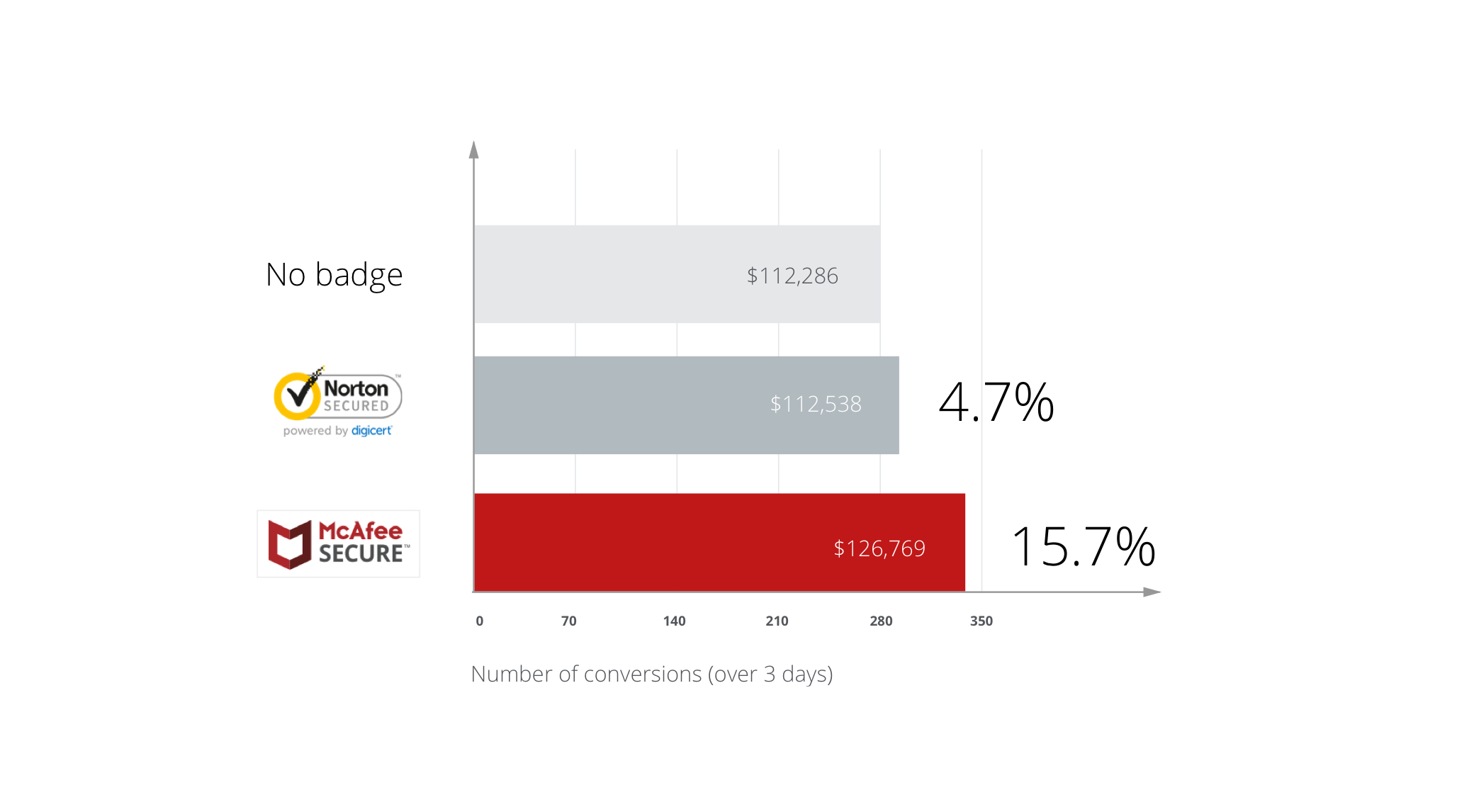
And our survey found that 81% of consumers say that if they landed on an online store they’d never heard of before, the McAfee SECURE trustmark would increase their confidence that they’re on a legitimate and secure website.
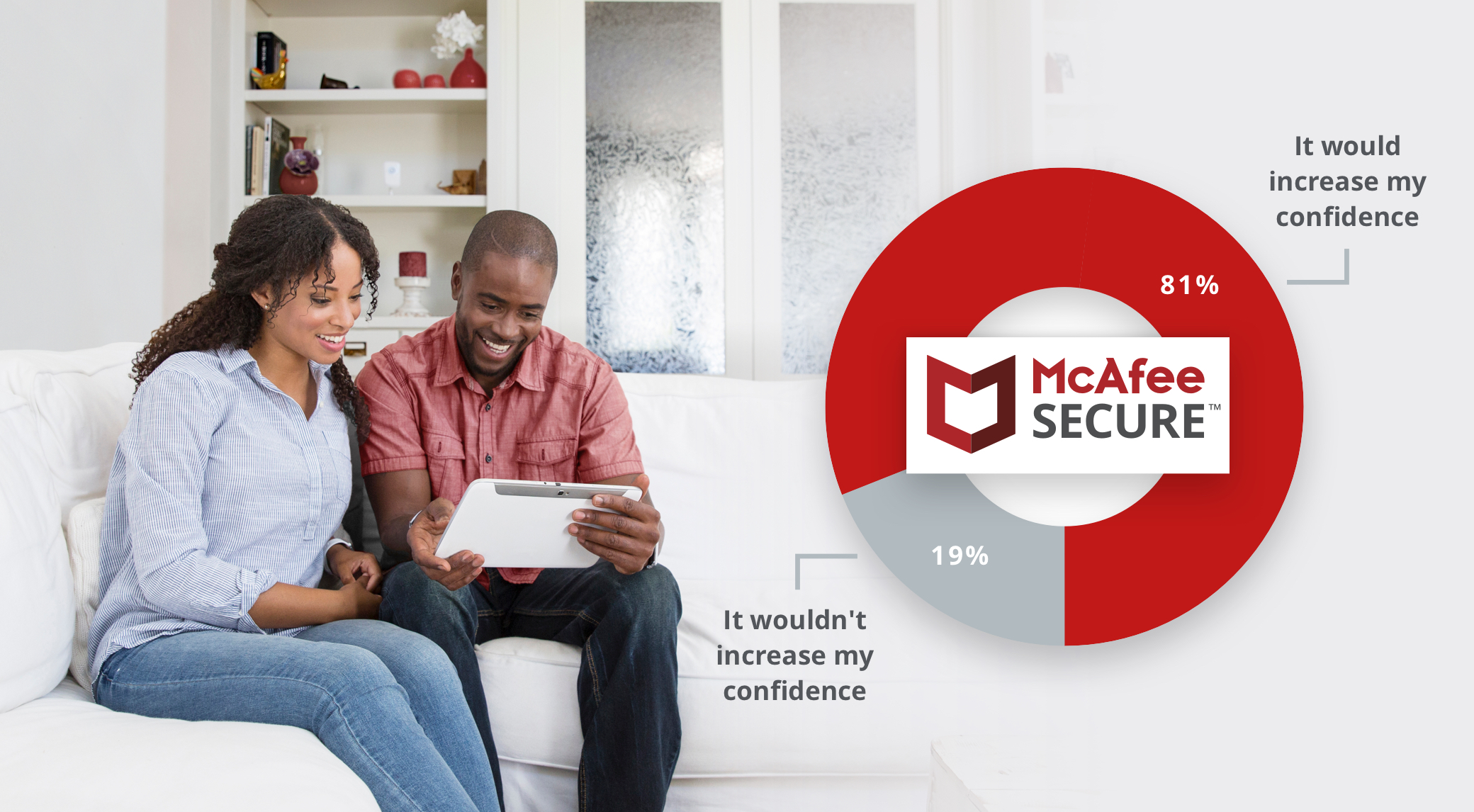
If you landed on an online store you’d never heard of before, to what extent would this [the McAfee SECURE] trustmark increase your confidence that you are on a legitimate and secure website?
We expect these trends to continue.
As online shopping continues to take market share, we believe that larger brands will continue to have a trust advantage over smaller or newer players. And that’s why we firmly believe in the continued importance of displaying trustmarks in 2018 and beyond. Display the McAfee SECURE trustmark on your ecommerce site.
We surveyed 663 online shoppers using Survey Monkey Audience, March 30 – April 4, 2018. Here are the full results of our survey.